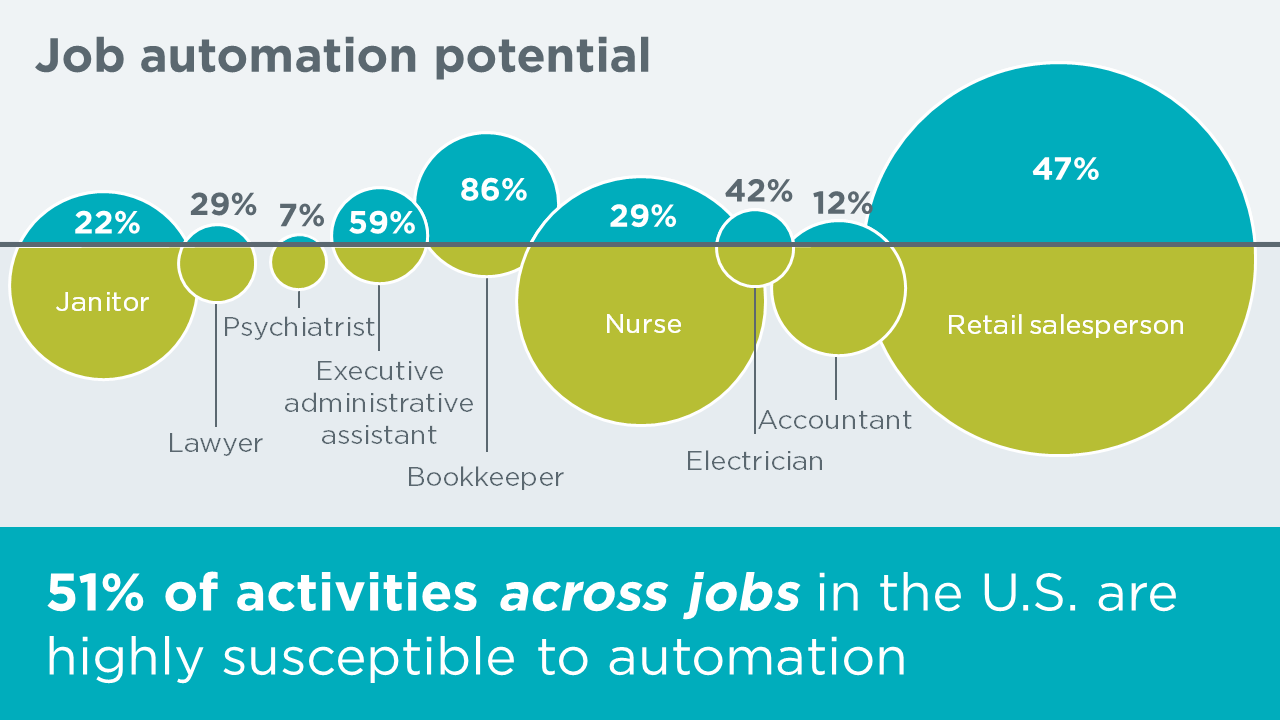Why schools should teach the curriculum of the future, not the past

In one study, computer science trailed only the arts in terms of classes school children liked the most. Image: REUTERS/Oswaldo Rivas
Robots, artificial intelligence, automation – no longer the stuff of science fiction movies. Overwhelming evidence shows the shift in what the workforce needs is already underway and that it will continue to grow much larger in the future. All around the world, leaders from government and industry debate the future of work and the changes brought by technology and automation. Despite this, the world is not reacting fast enough to update our system of education.
According to analysis of 750 occupations by the McKinsey Global Institute, 51% of job activities are highly susceptible to automation – and that’s through adapting currently demonstrated technology alone. It’s also important to note that these activities span jobs across industries as well as skill and wage levels. This indicates that automation is much less likely to lead to the mass unemployment predicted by alarmists but is almost certainly going to necessitate the redefinition of most occupations and requisite skills.

What are we doing to prepare future generations to thrive in this changing landscape? A student that begins primary school today will graduate from university in the mid-2030s and their career will last through 2060 or beyond. While we can’t predict exactly what our workforce’s needs will be in in the middle of the century, we already know they are changing and will continue to change with the rate of technological advancement.
Yet, in most schools you visit in 2018, you see teachers teaching the exact same subject matter as they taught in 1918: reading, writing, math, science, history and foreign languages. Debates about the future of education centre on changing how we teach, to embrace technology in the classroom, but there is almost no debate about changing what we teach. Any discussion of the future of work should go hand-in-hand with a discussion of the future of curriculum.
Problem-solving, creative thinking, digital skills and collaboration are in greater need every year yet are not taught in our schools. Even when schools teach digital skills, they focus on how to use technology – how to create a document or a presentation – rather than how to create technology. Some of the topics we teach today will no longer be essential in the 2030s: handwriting is increasingly obsolete, complex arithmetic is no longer done by hand, and the internet has replaced the need to memorize many basic facts.
We are faced with the challenge of redefining a foundational education to keep up with the evolution of skills required to solve problems, innovate and succeed. But, as a society, we are failing to meet that challenge and consequently failing to adequately prepare the next generation for the future.
To prepare all students with the creative, collaborative and digital problem-solving skills of the future, schools must teach computer science as part of the core curriculum. Computer science is not just about coding. It is also about computational thinking, interface design, data analysis, machine learning, cybersecurity, networking and robotics. Learning computer science encourages creativity, problem-solving, ethics and collaboration – skills which aren’t just important for technical careers in the developed world, but valuable for every career in all economies. What’s more, in a study of how students felt about their classes, computer science and engineering trailed only the arts in terms of classes they liked the most.

Education leaders should discuss removing aspects of the curriculum of 1918 to make room for the curriculum of 2018. Computer science shouldn’t be relegated to after-school clubs, robotics contests or hackathons. It shouldn’t be accessible only at a premium but taught as part of the primary and secondary school day, accessible to all students.
Our schools should teach the curriculum of the future, not just the curriculum of the past. Already, many countries have begun to embrace computer science as part of their national curriculum. In the US, 44 states have changed policies to recognize computer science as part of the academic core. Beyond the US, more than 25 countries have announced plans to expand school-day access to computer science. This group includes the UK, Australia, Japan, South Korea, Argentina, Ecuador, Italy, Malaysia, Sweden and Thailand.
Teaching computer science in schools may sound intimidating but it is an idea that generates hope. It inspires teachers and engages students. Even though the majority of the world’s teachers don’t have experience in computer science and many of the world’s schools lack connected computers, these are problems we can and should solve. Countries such as Brazil, Chile and Nigeria are building plans to tackle these challenges and the rest of the world should follow suit.
The future of work may be uncertain but there is one thing that is absolutely clear: computer science will be in greater demand than ever before and every student, in every school, should have an opportunity to learn it as part of the curriculum.
Don't miss any update on this topic
Create a free account and access your personalized content collection with our latest publications and analyses.
License and Republishing
World Economic Forum articles may be republished in accordance with the Creative Commons Attribution-NonCommercial-NoDerivatives 4.0 International Public License, and in accordance with our Terms of Use.
The views expressed in this article are those of the author alone and not the World Economic Forum.
Stay up to date:
Education
Related topics:
Forum Stories newsletter
Bringing you weekly curated insights and analysis on the global issues that matter.
More on Education and SkillsSee all
Jumoke Oduwole and Abir Ibrahim
November 11, 2025






